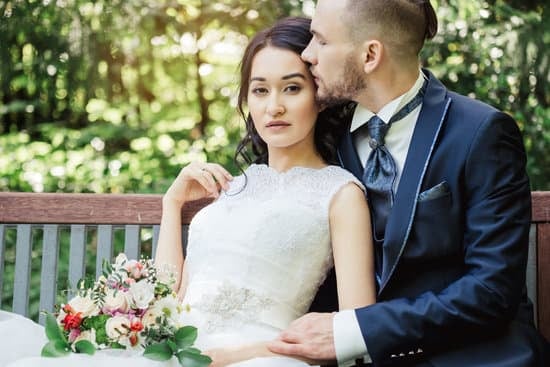
Are you feeling overwhelmed with the daunting task of planning your dream wedding? Look no further than this comprehensive wedding planning guide. From setting the perfect date to managing the intricate details of the big day, this guide will provide you with essential tips and strategies to ensure a successful and stress-free wedding planning journey.
Planning a wedding can be both exciting and overwhelming, but with the right guidance, it can certainly be a smooth process. In this wedding planning guide, we will cover everything from budgeting basics to vendor selection, dress and attire choices to creating a detailed timeline and checklist. Whether you are just starting to plan or already knee-deep in the process, this guide will serve as your go-to resource for all things wedding-related.
With so many factors to consider when planning a wedding, it’s important to have a clear understanding of what lies ahead. Each section of this guide is designed to address specific aspects of wedding planning, providing you with valuable insights and practical advice to help you navigate through every stage of the process. So sit back, relax, and let this wedding planning guide be your trusted companion on your journey towards your special day.
Setting the Date
When it comes to planning a wedding, one of the first and most important decisions to make is setting the date. Choosing the perfect wedding date involves considering a variety of factors that will ultimately shape the overall experience for both you and your guests. From the season and weather to personal significance, there are several key considerations to keep in mind when selecting your wedding date.
Season and Weather
The season in which you choose to have your wedding can greatly impact the overall feel and atmosphere of your special day. Consider whether you prefer a warm summer celebration, a cozy fall gathering, a crisp winter ceremony, or a blooming spring event.
Additionally, take into account the typical weather patterns during your preferred season at your desired location. For example, if you’re dreaming of an outdoor ceremony, you’ll want to choose a date with historically favorable weather conditions.
Personal Significance
Many couples opt for a wedding date that holds personal significance to them as individuals or as a couple. This might include choosing the anniversary of when you first met, had your first date, or got engaged. Similarly, some couples may choose a specific date that holds cultural or religious significance for them or their families. Considering these personal connections can add an extra layer of meaning to your special day.
Guest Convenience
It’s important to consider the convenience of your guests when choosing a wedding date. Take into account any major holidays or events that might conflict with your chosen date, as many guests may have pre-existing commitments during certain times of the year. Additionally, consider whether travel and accommodations might be more challenging for out-of-town guests depending on the time of year.
By carefully considering these factors when setting the date for your wedding, you can ensure that it will be a memorable and enjoyable occasion for all involved. Whether you prioritize seasonal ambiance, personal significance, guest convenience-or all three-choosing the perfect wedding date is an essential step in beginning this exciting journey.
Budgeting Basics
When it comes to planning a wedding, one of the most important aspects to consider is the budget. Setting a clear and realistic budget for your wedding will not only help you avoid overspending but also reduce stress throughout the planning process. Here are some essential tips for creating a wedding budget and sticking to it.
Evaluate Your Finances
Before setting a budget, take a close look at your finances. Determine how much you and your partner can realistically contribute to the wedding expenses. Consider any savings, contributions from family members, and any other sources of income that can be allocated towards the wedding.
Prioritize Your Needs
Once you have an idea of how much you can comfortably spend, prioritize your needs for the wedding. Decide on the elements that are most important to you both as a couple. Whether it’s the venue, catering, photography, or entertainment, allocating more funds to these priority areas will ensure that you’re investing in what matters most to you.
Track Your Expenses
Throughout the planning process, it’s crucial to keep track of all your expenses. This includes everything from deposits on vendors to small decor items. By monitoring your spending, you’ll be able to identify any areas where you may be overspending and make adjustments as needed.
By following these budgeting basics and sticking to your financial plan, you can ensure that your wedding is not only memorable but also financially manageable. Remember that at the end of the day, what truly matters is celebrating this special occasion with loved ones, regardless of how much money was spent on it.
Venue Selection
When it comes to planning a wedding, one of the most important decisions you will make is choosing the perfect venue. The venue sets the tone for the entire event and can greatly impact the overall experience for you and your guests. To ensure that you find the ideal wedding venue, there are several important factors to consider.
First and foremost, consider the size of your guest list. You want to choose a venue that can comfortably accommodate all of your guests without feeling overly crowded. Additionally, think about the location of the venue in relation to where most of your guests will be coming from. If many guests will be traveling from out of town, it may be convenient to choose a venue that is close to hotels and transportation options.
Another important factor to consider when selecting a wedding venue is the style and ambiance you desire for your special day. Whether you dream of an elegant ballroom, a rustic barn, or a scenic outdoor setting, it’s essential to choose a venue that aligns with your vision for your wedding day. Keep in mind that some venues may have restrictions on decor and other elements, so be sure to inquire about any limitations before making a decision.
Finally, budget is always a crucial consideration when it comes to choosing a wedding venue. While it’s important to find a venue that meets your needs and preferences, it’s equally important to ensure that it fits within your budget. Be sure to ask about all potential costs associated with the venue, including rental fees, catering packages, and any additional services offered.
| Factors to Consider | Considerations |
|---|---|
| Guest List Size | Choose a venue that can accommodate all guests comfortably. |
| Location | Consider proximity to hotels and transportation options for out-of-town guests. |
| Style and Ambiance | Ensure that the venue aligns with your vision for your wedding day. |
| Budget | Inquire about all potential costs associated with the venue. |
Dress and Attire
Finding the perfect wedding dress and attire for the entire wedding party is an exciting but important part of the wedding planning process. The attire sets the tone for the entire event and contributes to creating beautiful and lasting memories. Here are some essential tips for finding the perfect wedding dress and attire:
- Start Early: Begin the search for your wedding dress and attire for the wedding party well in advance. This allows time for alterations, fittings, and any unexpected delays.
- Do Your Research: Look through bridal magazines, websites, and social media platforms to gather inspiration and ideas for your wedding dress and the attire for your bridesmaids, groomsmen, and other members of the wedding party.
- Consider Your Venue: The style and formality of your venue can guide your choices when it comes to selecting your wedding dress and attire. For example, a beach wedding may call for light, flowy fabrics while a traditional church ceremony may warrant more formal attire.
When it comes to finding the perfect wedding dress, it’s essential to keep an open mind and try on different styles to see what suits you best. Additionally, involving trusted friends or family members in the process can provide valuable feedback and support. Remember that finding the perfect dress and attire is all part of creating a memorable and meaningful experience for everyone involved in your special day.
Vendor Vetting
When planning a wedding, one of the most important aspects is selecting the right vendors to help make your special day perfect. From photographers to caterers, each vendor plays a crucial role in creating an unforgettable experience for you and your guests. Here are some key tips for vetting and selecting the best wedding vendors to ensure that everything goes smoothly on your big day.
First, it’s essential to do thorough research when selecting wedding vendors. Read reviews, ask for recommendations from friends and family, and schedule consultations with potential vendors to get a feel for their style and personality. It’s also important to ask about their experience in the industry and request to see examples of their work or sample menus.
Next, be sure to ask each vendor detailed questions about their services, pricing, and any additional fees that may be incurred. It’s important to have a clear understanding of what is included in the contract and if there are any potential add-ons that could impact the overall cost. This will help you avoid any surprises down the line and ensure that you stay within your budget.
Additionally, don’t underestimate the importance of chemistry when it comes to choosing wedding vendors. You’ll be spending a lot of time with these individuals on one of the most important days of your life, so it’s essential that you feel comfortable with them.
Trust your instincts and select vendors who not only demonstrate professionalism but also make you feel at ease. By following these tips, you can confidently select the best wedding vendors who will help bring your dream wedding to life.
Timeline and Checklist
Planning a wedding can be overwhelming, but having a timeline and checklist in place can help keep you organized and on track. Here are some tips for creating a wedding planning timeline and checklist:
1. Determine Your Wedding Date: The first step in creating a wedding planning timeline is to choose your wedding date. Consider important factors such as the availability of your desired venue, the season or month you prefer, and any significant dates or events that may clash with your chosen date.
2. Create a Comprehensive Checklist: A detailed checklist will help you stay organized throughout the entire planning process. Break down each task into manageable steps and set deadlines for each one. Some key items to include on your checklist are selecting a venue, choosing vendors, sending out invitations, and organizing transportation.
3. Set Milestones: In addition to specific tasks on your checklist, it’s helpful to set milestones for major decisions or bookings. This could include finalizing the guest list by a certain date, booking the caterer and florist by a specific time, or completing all DIY projects at least one month before the wedding.
Remember that every wedding is unique, so be sure to customize your timeline and checklist to fit your own preferences and priorities. By staying organized and keeping track of all the details, you’ll be able to enjoy the journey leading up to your special day without feeling overwhelmed by last-minute tasks.
Wedding Day Logistics
As the big day approaches, it’s essential to have a solid plan in place to manage all the details and ensure that everything runs smoothly. From coordinating with vendors to delegating responsibilities, here are some tips to help you navigate the logistics of your wedding day.
One key aspect of managing the details of your wedding day is to create a detailed timeline. This timeline should include key events such as the ceremony start time, cocktail hour, first dance, and cake cutting. Make sure to share this timeline with your vendors, bridal party, and anyone else involved in the event so that everyone is on the same page.
Another important consideration is delegation of responsibilities. It’s impossible for you, as the bride or groom, to handle every single detail on your own. Consider appointing a trusted friend or family member to be in charge of overseeing certain aspects of the day, such as vendor coordination or managing guest needs. Having designated individuals to handle these tasks will alleviate stress and allow you to fully enjoy your special day.
Finally, it’s crucial to communicate effectively with your vendors and venue staff. Clearly outline your expectations and any special requests well in advance of the wedding day. Providing vendors with a point person to contact if any issues arise can help streamline communication and prevent last-minute complications.
| Detail Management Tips | Key Responsibilities |
|---|---|
| Create a detailed timeline | Coordinate with vendors |
| Delegate specific responsibilities | Appoint trusted individuals for key tasks |
| Communicate effectively with vendors and venue staff | Outline expectations in advance |
Conclusion
In conclusion, planning a wedding can be a daunting task, but with the right guidance and advice, it can also be a rewarding and fulfilling experience. As you embark on this journey, remember to keep an open mind and stay organized. There will inevitably be ups and downs along the way, but staying true to your vision and remaining flexible will ensure that everything falls into place beautifully on your special day.
One important piece of advice for a successful wedding planning journey is to prioritize communication with your partner. Make decisions together, compromise when necessary, and support each other throughout the process. This will not only strengthen your relationship but also ensure that both of your visions are reflected in every aspect of the wedding.
Lastly, don’t forget to enjoy the process. While it’s important to stay focused and organized, it’s equally important to savor every moment of this once-in-a-lifetime experience. Keep in mind that at the end of the day, the most important thing is celebrating your love with family and friends. With careful planning and a positive attitude, your wedding day is sure to be everything you’ve ever dreamed of. Congratulations on your upcoming nuptials.
Frequently Asked Questions
What Is the 30 5 Minute Rule for Weddings?
The 30 5 minute rule for weddings is a guideline that suggests spending 30 minutes with each table of guests, with the goal of ensuring that the newlyweds get to interact and thank each of their guests personally.
This approach allows the couple to make meaningful connections with their loved ones while still making time for other important aspects of the event.
Is $5,000 Enough for a Wedding?
Whether $5,000 is enough for a wedding largely depends on individual preferences and priorities. For some couples, this budget may be sufficient if they opt for a small, intimate gathering or a casual celebration.
However, others may find it challenging to cover all the essential expenses such as venue rental, catering, attire, and other basics within this budget. It ultimately comes down to careful planning and prioritizing.
What Are the Basics for Planning the Wedding?
The basics for planning a wedding typically include setting a budget, creating a guest list, choosing a venue and date, securing vendors (such as caterers, photographers, etc. ), selecting attire for the wedding party, and sending out invitations.
Additionally, considerations like ceremony logistics and transportation should also be included in the planning process. Planning ahead and staying organized are key to successfully executing each aspect of the event.




